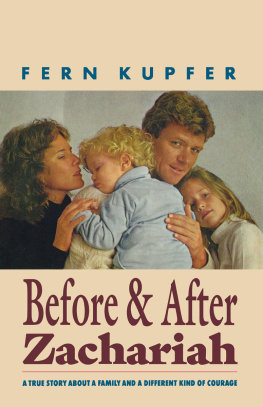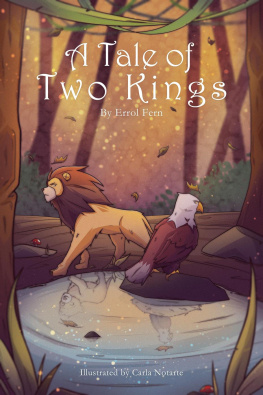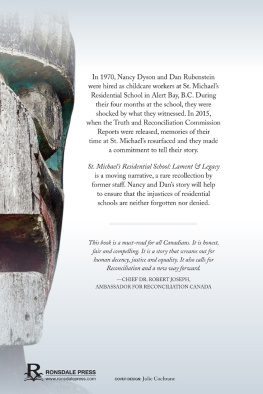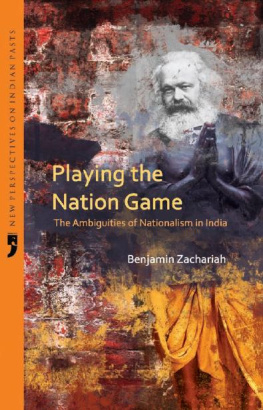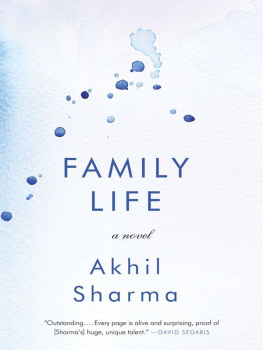

Published by
Academy Chicago Publishers
213 West Institute Place
Chicago, Illinois 60610
Copyright 1982 by Fern Kupfer
Printed and bound in the USA
No part of this book may be reproduced
in any form without the express
written permission of the publisher.
Cover photograph of the Kupfer family copyright 1982 by Barbara Campbell and Redbook magazine.
Lines from One-Eye, Two-Eye, Three-Eye, from Transformations by Anne Sexton. Copyright 1971 by Anne Sexton. Reprinted by permission of Houghton Mifflin Company.
Library of Congress Cataloging-in-Publication Data
Kupfer, Fern.
Before and after Zachariah.
Reprint. Originally published: New York: Delacorte Press, 1982.
1. Kupfer, Zachariah. 2. Brain-damaged childrenUnited StatesBiography. 3. Mentally handicapped childrenUnited StatesBiography. I. Title.
[RJ496.B7K86 1988] 362.19685880924 [B] 87-37371
ISBN 0-89733-303-9 (pbk.)
For My Family: Joe, Gabi, and Zachariah
Contents
Acknowledgments
For the sake of privacy and clarity, some characters in this book have been fictionalized and some names and places have been changed.
I am grateful to all the many mothers of severely handicapped children who shared with me their most painful, private feelings. Most especially to J.K. and Ellen Donnelly.
I am thankful to agents Gayle Benderoff and Deborah Geltman for making that first call; to my editor, Sandra Choron, for her passionate intelligence; to Marj Whitney, who met all those awful typing deadlines and whose kindness and enthusiasm for the project never flagged; to my friend Maggie McCarey for her gift of poetry; and to Andrea Fooner, who saw a special young mothers story. My family and friends have supported me unwaveringly. To my husband, Joe, who read and reread, who gave gentle criticism, who lived with me through the worst of times and claims to love me still, I offer a lifetime of gratitude.
And, of course, Joe and I are forever thankful to the people of Hills and Dales Child Development Center and the Childrens Habilitation Center who have cared for and loved our son.
He is carried in a floating basket
Unflinching at the lapping of his days
No dreams of marbles, cats, or greater stuff
And yet, his being has been a tantara:
A fanfare, a loud and lusty trumpet blast.
Before, we played so green and golden
Sometimes I dont remember who we were
But after Zachariah, oh, after
How tenderly we touch our scars
How mindful of that chancy evil eye.
Introduction
Promise me, Fern, just promise me; you are not going to write a happy book.
Wanda
Zachariah at fivenow palely, sadly beautiful. A baby who cannot sit, or use his hands or say Mommy. Still an infant who needs to be rocked and held. Damaged goods. This is a story about a child and the tragedy that is his small life, about surviving in a family seared by the pain, about a change in my life so powerful, so enduring, that I define myself every day by its consequence.
Change comes upon us, not slowly, gently evolving, within our control, but suddenly, abruptly, within hours, sometimes moments, the course of our lives so turned around, turned about, inside outa slick road on the way home from work; in the night, the discovery of a lump. Lives are smashed and rearranged without any preparation on our part. The rug is pulled out from under us, the roof comes caving indomestic metaphors for catastrophe. Oh, the capricious nature of tragedy. Sometimes its hard to plan beyond whats for dinner.
I am part of a community of women who share a common pain. When I first knew that something was wrong with Zach, I would seek out these women; I wanted to hear their stories because I thought they could help me understand and make decisions about my own life. Mothers of children who were now thirty years old themselves could talk about their pregnancy, their childs infancy, with such freshness and clarity that it would seem only a few months rather than a few decades had passed. For most of us, having a profoundly handicapped child is the single most defining feature of who we are.
As I began to write my story the voices of other women spoke to me. And the other voices spoke as I changed Zach in his crib, as Joe and I went to another doctor, saw another social worker, attended another evaluation.
They spoke as we left Zach in the arms of strangers so many miles away.
Part 1

BEFORE ZACHARIAH
1
I filled out a survey the other day and as I checked the right boxes I thought about who I was: Female, white, 30-35 years old, Democrat, college educated, married, Catholic, children (three), home-maker, twenty-five-to-thirty-five-thousand dollars a year. But there was no box which asked if any of my children were not normal and how did that affect my life?
Erica
In a speech class I teach, I ask the students, for their introductory presentations, to bring themselves to class in a paper bag, to select three things that best show or symbolize who they are as people and share these with the class. My students at the community college bring record albums (music plays a big part in my life) and family pictures and schoolbooks. One boy takes out a six-pack of Bud (this is what I do every weekend); a girl displays her checkbook and its balance of ninety-three cents (being poor is my identity, she explains).
I, too, am going to participate, to introduce myself to the class. The night before I think of what to put in my paper bag and think of who I am.
I am thirty-four but part of a generation who heard that this age could not be trusted. I see small lines around my eyes and the boy at Safeway who puts the sacks in the back of my station wagon calls me maam.
My friend Barbara calls from New York. We have been friends since junior high; her first period began in my house, her exuberant shouting from the upstairs bathroom, I got it! I got it! Then, more restraint, compassion, because I, her best friend, had not yet got it.
At college we shared sweaters and graphic sexual secrets. And years later, hundreds of miles apart, we talk of the security and constraints of monogamy, the joyful births of our first children, our daughters; we swap teaching stories and give each other book lists. We talk, even on Ma Bells discount rates, long into the night, at least fifteen dollars worth. We say at different times in the conversation, Oh, my God, this will be some bill, but we continue on the telephone, that intimate connection for women, ear-to-ear, mouth-to-mouth, heart-to-heart. Tonight Barbara calls and says how the young mothers around the pool at her apartment complex that summer are really young. Shes thinking about covering the gray that has begun to thread itself through her thick, dark hair.
I mean, really, Fernie, I think we have only a few good years left!
I am a New Yorker, now living almost a decade in the Midwest, a Jew surrounded by Gentiles who see this identity and my New York accent as somewhat exotic. (My students ask, Are you from Boston?)
Next page
